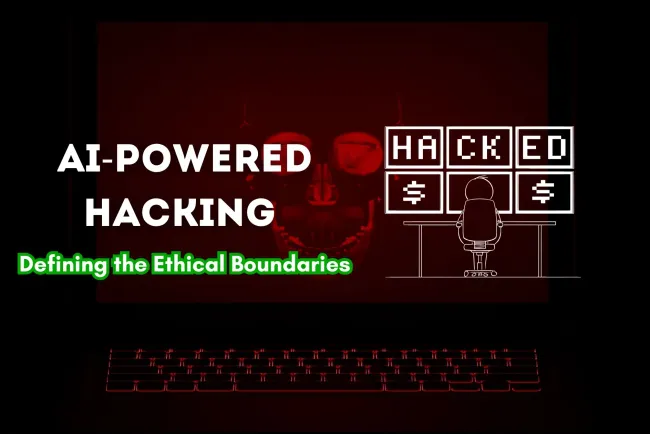Your 2025 Career Guide to Becoming a Python Developer
Embark on a rewarding career journey with our 2025 career guide to becoming a Python developer. Explore essential strategies and insights to pave your path to success in the dynamic field of Python development. Python developer, Python programming, career guide, career strategies, career advice, career development, Python coding, programming career, Python skills, software development, Python career opportunities.

Python, a powerful, dynamically typed programming language, has solidified its status as a software development standard. Python, known for its simplicity, readability, and broad standard library, enables developers in a wide range of fields, including web development, data analysis, artificial intelligence, and scientific computing. Its concise syntax and high-level abstractions make it simple for novices while providing extensive capabilities for more experienced experts. Python's dynamic community encourages collaboration, creativity, and the development of high-quality open source projects. Python's adoption by tech behemoths, startups, and educational institutions throughout the world has helped it establish itself as the preferred language for prototyping, scripting, and building scalable systems.
Python's support for a wide range of platforms, extensive ecosystem of libraries and frameworks, and seamless interface with other languages make it an appealing option for developers looking for efficiency, productivity, and diversity in their projects. Python's influence is growing, and it remains at the forefront.
DUTIES OF PYTHON DEVELOPER
They leverage Python's extensive ecosystem of modules and frameworks to develop scalable web apps, data analysis pipelines, machine learning models, and automation scripts. Python engineers also contribute to open-source projects, stay current on emerging technologies and best practices, and continuously improve code efficiency and maintainability. Python developers use their strong problem-solving skills and attention to detail to drive innovation, streamline processes, and deliver high-quality software solutions that adapt to changing customer and stakeholder needs.
ROADMAP FOR SUCCESS
Understand the basics of Python
Before entering any particular area, it is critical to understand the fundamentals of Python programming. Begin by mastering basic grammar, data types, variables, loops, conditional statements, and functions. There are many online resources available, including tutorials and interactive platforms.
Practice regularly
To master programming, as with any other skill, continuous practice is required. Set aside time daily or weekly for coding exercises, challenges, and little projects. Websites such as LeetCode, HackerRank, and Project Euler offer a variety of coding challenges to help you develop your abilities and problem-solving ability.
Explore Python libraries and frameworks
Python's power comes from its broad ecosystem of libraries and frameworks intended for specific purposes. Familiarize yourself with widely used libraries such as NumPy and Pandas for data analysis, matplotlib and seaborn for data visualization, Flask and Django for web development, TensorFlow and PyTorch for machine learning, and more. Experimenting with these libraries will help you broaden your knowledge and discover new areas of interest.
Create projects
Practical projects allow you to use your academic knowledge and earn significant experience. Begin with simple projects such as a to-do list app, a calculator, or a straightforward web scraper. As you progress, take on increasingly complicated projects like developing a web application, devising a machine learning model, or automating repetitive activities using Python scripts.
Contribute to Open Source
Contributing to open-source projects gives you the opportunity to engage with other developers, acquire experience with real-world codebases, and enhance your coding skills. Platforms such as GitHub host a large number of open-source projects spanning many domains. Find projects that match your interests and skill level, and don't be afraid to contribute pull requests, raise issues, or join in conversations.
Learn about version control
Version control systems, like Git, are essential tools for collaborative development and project management. Learn the fundamentals of Git, including how to create repositories, branch, merge, and resolve disputes. Understanding version control will help you optimize your workflow, improve collaboration, and become a more productive developer.
Keep up to date
The technical industry is always evolving, and being current with the latest trends, technologies, and best practices is critical for professional growth. To keep up with the newest advancements in the Python community, read Python blogs, attend meetups, engage in online forums such as Stack Overflow and Reddit, and subscribe to newsletters and podcasts.
Network and seek mentorship
Networking with other developers and seeking mentorship can provide useful insights, assistance, and possibilities for advancement. Join local Python meetups, conferences, and online communities such as Python Discord and PythonistaCafe, and don't be afraid to ask experienced devs for guidance and mentorship.
Create a portfolio
As you gain experience and accomplish projects, share your work on a portfolio website or platform such as GitHub. Highlight your projects, open-source contributions, and any relevant experience or qualifications. A well-curated portfolio showcases your programming abilities, passion, and commitment to lifelong learning, making you more appealing to prospective employers.
Pursue continuous learning
Finally, recognize that learning is a lifetime process. As a Python developer, you should embrace challenges, try out new technologies, and never stop learning and progressing. Python offers limitless opportunities to master advanced topics such as algorithms and data structures, delve into specific fields such as web programming or machine learning, and investigate upcoming technologies such as artificial intelligence and blockchain.
CONCLUSION
Finally, Python is a powerful, dynamic programming language that has become the industry standard for software development. Its simplicity, readability, and extensive library support make it an adaptable option for developers working in a range of fields. The language's active community fosters collaboration, which drives innovation and the creation of major open-source projects. Python's widespread adoption by industry leaders and educational institutions strengthens its position as the ideal language for prototyping, scripting, and constructing scalable systems.
Python developers, in turn, have a number of responsibilities. From system architectural design to coding, testing, and debugging, they are essential components of the software development lifecycle. Collaboration with cross-functional teams and the usage of Python's environment for a wide range of applications, including web development and machine learning, illustrate the language's adaptability. Continuous learning, contributions to open source, and the pursuit of best practices keep Python developers on the cutting edge of technological advancements.















![Top 10 Ethical Hackers in the World [2025]](https://www.webasha.com/blog/uploads/images/202408/image_100x75_66c2f983c207b.webp)








